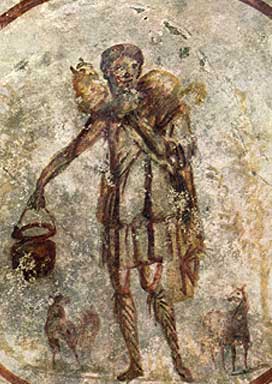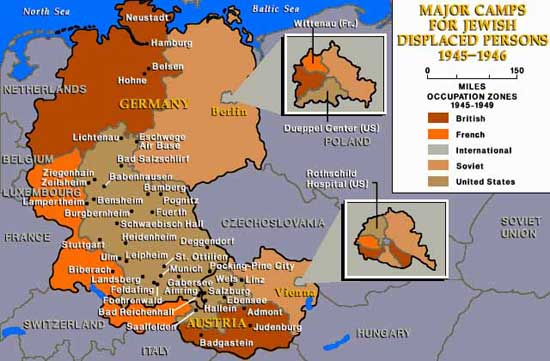
With the ruins of the churches in Rome and in all the provinces, in the cities and in the countryside, with the destruction of the Scriptures and libraries of the cathedrals and basilicas, came a loss which would have impacted the daily lives of the Christians.
No longer would they have easy access to the sacramental life of the Church. By the end of 303, the clergy would have been imprisoned or scattered. Some would have melted into the houses of the laity. Some would have left the areas for safety, like the Seminary Priests during the Protestant Revolt in England.
That the clergy went underground is obvious for one reason-the Faith survived. In some places, as the
persecution intensified (and, remember, it was empire-wide), entire congregations would disappear. Parishes and dioceses would disappear forever. Not one of the churches mentioned in the Book of Revelation survived.
Sometimes, it is easier to hide in a very large city. Sometimes, it is easier to hide in the country.
We know from the history of the liturgy, that the Mass was at first in the cities in the cathedrals and was
high mass. We know that the low mass came about because of the dispersal of the Catholics from the urban areas into the countryside.
Smaller, unknown churches with simplified rubrics became the order of the day. We also know that the catacombs, the ancient tombs of Rome, were used for mass.*
The catacombs would have been implemented for burials only until the end of the fourth century, when Catholics were free to bury their dead above ground.
But, in the time of Diocletian, the catacombs would have been places for mass. So, from the third to the end of the fourth centuries, these underground places provided safe havens for worship, not for living.
 |
| Thanks to wiki for photo of The Good Shepherd from S. Callisto catacomb. |
However, in our day and age, such places of safety will be more and more rare. With the great intrusiveness of privacy, less and less communities will be isolated. But, the world is a very big planet, and the remnant will be small. To think there will be no safe havens is not realistic, but to pretend there will be many is also unrealistic.
That the remnant may consist of less numbers than what we could imagine is a strong possibility. But, as in all times of persecution, those who can get away from the worst areas of hatred will be those who have a plan.
I know two people who escaped the Nazi take over of Czechoslovakia. They managed to get out because they either obeyed a parent who told them to go, now, (the teen woman), or they skillfully planned an escape (the teen man).
They both made it to England, fell in love there, and finally traveled to Canada, where they lived most of their long lives.
The woman in this couple had a sister who did not escape. She did not obey her father's warning to "leave now".
She was never found. Years, ago, I myself tried to help the woman locate her sister, but we had to give up. We could not find a trace of her after that sad day.
The use of common sense and the use of discernment can make a difference between life and death.
Some Catholics would have left Rome and gone into country areas, away from the towns and cities where the arrest of Catholics would be easiest. They would not have gone alone. There would have been "safe houses" as in England in the 15th and 16th centuries.
The spread of Christianity partly was owing to the dispersal of the Roman citizens across Europe.
This type of movement may happen again, but with a difference. However, people would have to be willing to be displaced, to move, to leave all, for the sake of the Gospel being handed down to the next generation.
Like the forever missing sister, some who refused to flee died. Some did not have a choice, as they were arrested. But, some survived.
Therefore, one must adopt a flexible attitude of being alert. One must help establish safe houses. One must be willing to sacrifice all.
(*Thanks to Father Michael G. Nevin in a series of talks at St. Kevin's, Dublin Latin Mass Chaplaincy, for notes on the history of the liturgy in early Rome.)
To be continued....


No comments:
Post a Comment